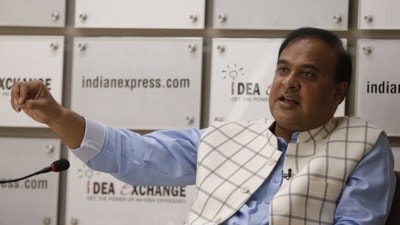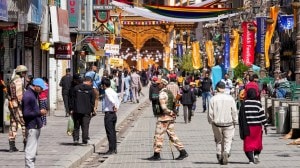China supports Russia in Chechnya — Ivanov
BEIJING, DECEMBER 9: Chinese President Jiang Zemin gave full backing to Russia in its fight against terrorism and extremism in the rebel r...

BEIJING, DECEMBER 9: Chinese President Jiang Zemin gave full backing to Russia in its fight against terrorism and extremism in the rebel republic of Chechnya, Russian Foreign Minister Igor Ivanov said today.
"Jiang Zemin completely understands and fully supports Russia’s actions in combatting terrorism and extremism in Chechnya and in the northern Caucasus," Ivanov told reporters.
He was speaking after a ceremony in which he and Chinese Foreign Minister Tang Jiaxuan signed two border demarcation agreements on the east and western borders, as Russian President Boris Yeltsin and Chinese President Jiang Zemin looked on.
Yeltsin and his entourage, arrived in Beijing earlier today for an informal summit aimed at clinching China’s support for the Russian offensive in Chechnya.
International outrage at the Russian offensive on Grozny reached a peak this week after Moscow issued an ultimatum to some 40,000 inhabitants to flee the capital.
But, China a consistent supporter of Russia on matters concerning territorial intregity, said earlier this week the Chechnya war was Russia’s internal affair.
Yeltsin is also scheduled to meet with Premier Zhu Rongji and National People’s Congress chairman Li Peng later today.
The leaders are expected to discuss international terrorism, attempts to provoke ethnic conflicts, and the international community’s participation in such conflicts.
Meanwhile, apart from US President Bill Clinton, the European Union also seems to be very concerned about the continuing Russian offensive in Chechnya. Outraged by Moscow’s ultimatum to civilians to get out ofthe Chechen capital Grozny by Saturday or face merciless bombardment, EU leaders are expected to back up their anger with sanctions.
"We need a common European position in Helsinki," EU commission president Romano Prodi said on Wednesday. "We do not accept a situation in which violence is used to resolve conflicts."
In the face of the strong messages being sent to it by various Western countries, Russian Deputy Prime Minister Ilya Klebanov hinted that Russian forces may change their tactics in their offensive.
“Now poised for the final assault on Grozny, federal troops might change their operational tactics. If the rebels do not surrender, but continue their resistance, the Russian army may be forced to use other types of weapons,” he warned.
He disclosed that advanced military helicopters, called `black sharks’, have landed at the army base at Mozdok.
“They have armoured body and are equipped with more powerful weapons than used so far,” he said.
Klebanov said once the rebels were pushed out of towns and cities of Chechnya to flee to higher mountainous regions, Moscow will be free to use its air power.
“Their shifting to mountainous regions will untie the hands of the air force. They will be able to use the Tu-22m3 bombers, known as `backfire’, which will be effective in operations in such regions.”



- 01
- 02
- 03
- 04
- 05




























